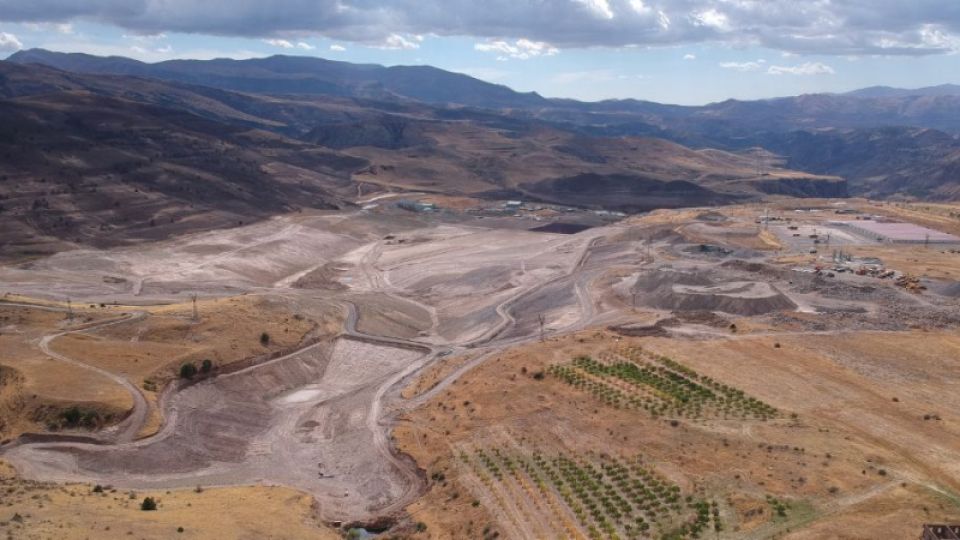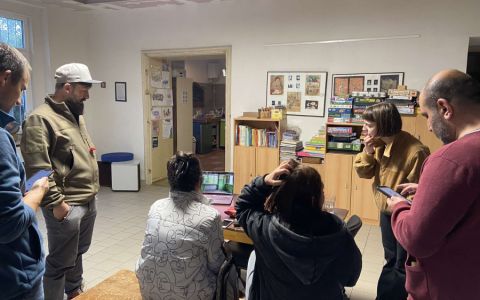People in the famous spa town of Jermuk are disturbed by the possible reopening of the Amulsar gold mine. Despite opposition from the public and environmentalists, the Armenian government has approved the resumption of exploratory geological work. The town of four thousand is thus likely to be adjacent to an operation that will cause irreparable damage to the local environment.
The small town of Jermuk is one of Armenia's best-known resorts, mainly because of its healing mineral springs. It lies about 200 kilometres from Yerevan. Since 2005 Jermuk has also been famous for another reason. Namely, geological exploration works were started in this locality in order to evaluate the amount of valuable metal found in the underground Amulsar deposit. A gold-mining licence was then granted to Lydian Armenia, a subsidiary of the US-Canadian holding company Lydian International, in 2014. The company was forced to suspend mining in 2018 after massive protests and blockades by the public and environmentalists.
The largest lake in the Caucasus faces ecological disaster
Armenia's second largest gold deposit remained in this state until this year. In February, the company received permission from the state to resume suspended operations. The agreement to resume mining of the Amulsar deposit was signed by three parties – the Armenian government, the Eurasian Development Bank, and Lydian Armenia. The mining company agreed to pay 12.5 percent of its profits to the state budget.
Preliminary estimates suggest that 40 tons of gold lie beneath Mount Amulsar, but the cost of the potential damage from mining will be much higher. Environmentalists have expressed concern that mining will pollute the waters of the Arpa and Vorotan Rivers with dangerous chemicals and heavy metals. This would also threaten the ecosystem of Lake Sevan, the largest freshwater lake in the Caucasus. The healing mineral springs in Jermuk may also suffer irreparable damage.
The mine will drive us out of here, the locals fear
If the project goes ahead, the renowned tourist resort risks turning into an industrial base. The strong influence of mining companies could block the way to alternative and sustainable development in the area. Residents of Jermuk fear that they will have to leave the town sooner or later for environmental, health, or economic reasons. Oleg Dulgaryan, director of the NGO Center for Community Mobilization and Support, comments on the situation, saying: "Until now, the state is not able to study the diseases of the residents of communities "buried" in waste. There are no appropriate mechanisms." Therefore, he says, it is ill-advised to open more deposits without a realistic risk assessment.
The state on the side of industry
Despite the enormous social and environmental risks, the opposition of local residents, and warnings from environmental organizations, the state has sided with industry, thus ignoring the interests of the public. It should be noted that in 2022, the Armenian government approved an amendment to the land law that automatically extends mining licences when operations are suspended because of natural disasters, war, or civil disobedience (e.g. protests, blockades). This means that Lydian Armenia is the first company that can use this law and automatically extend its licence for three years.
Expert Inga Zarafyan from the environmental NGO EcoLur fears that Jermuk may suffer the same fate as the former mining town of Dastakert, "which turned into a ghost town after all the mines there were closed."







